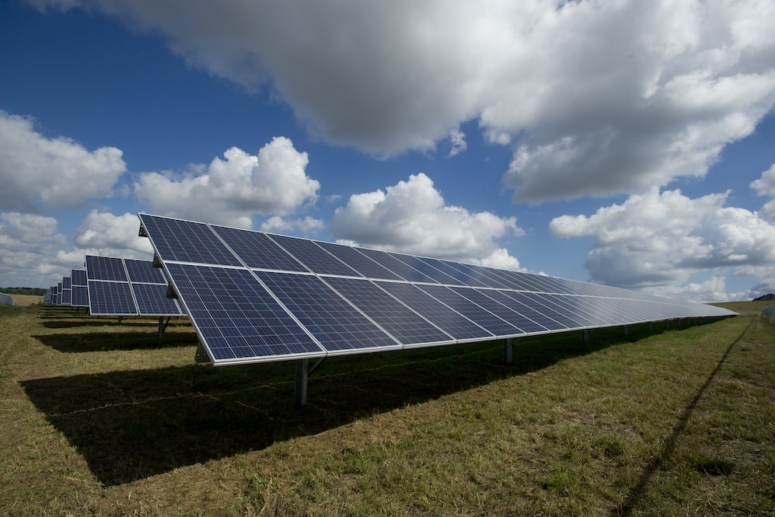
The sun is a constant source of power and life, providing us warmth and energy daily. As our world becomes increasingly focused on sustainability and reducing our carbon footprint, it’s no surprise that the solar energy market has seen explosive growth in recent years. But as with any new and rapidly growing industry, challenges and opportunities can also be found in the solar energy industry.
In this blog, our renewable energy headhunters dive into the world of solar energy and explore the challenges and opportunities that come with harnessing the sun’s power. From the technical obstacles of efficiently capturing and storing solar energy to the political and financial hurdles of a growing market, we’ll uncover the challenges in the solar energy market and what can drive the industry forward.
Challenges in the Solar Energy Market
Solar energy has emerged as a promising solution to meet the growing energy demands while addressing the climate change crisis. However, despite the solar industry’s growth, significant challenges must be overcome to achieve its full potential.
The High Cost of Installation
One of the major challenges in the solar energy market is the cost of solar systems. Despite the dramatic cost reductions in recent years, the upfront cost of installing solar panels remains a barrier for many homeowners and businesses. On average, a commercial solar system can cost around $200,000, and a home solar system can cost anywhere from $15,000 to $25,000. Several factors contribute to the high cost of installing solar systems, including the cost of equipment, labor, and installation.
The cost of solar panels, inverters, and other equipment has decreased in recent years, but labor and installation costs remain high. This is due to the need for trained and skilled workers to install the systems properly and the time and resources required to complete the installation process. Additionally, there are also costs associated with maintenance and repair, which can be a concern for those considering solar energy.

Access to Financing
Access to financing, particularly for small-scale solar projects, is still a prevalent challenge. Many individuals and businesses face difficulties obtaining financing for solar installations, which can limit the solar industry’s growth. There are several reasons for that:
- Many financial institutions view solar projects as high risk due to the high upfront cost and uncertainty surrounding the return on investment.
- Many financial institutions lack experience in financing renewable energy projects, which can make it difficult for them to assess the risk and potential returns of solar projects.
- The regulatory environment for financing renewable energy projects can be complex, with varying rules and regulations at the federal, state, and local levels.
Without access to financing, many individuals and businesses can’t invest in solar energy, limiting the solar industry’s growth. However, this challenge can be addressed by providing incentives for banks and other financial institutions to invest in the solar energy market.
Grid Interconnection
The integration of solar energy into the existing grid infrastructure is a major challenge in the solar energy market. Complex regulations, technical challenges, and limited capacity have posed challenges to expanding and new industry projects. Moreover, experts suggest that current grids aren’t prepared for the solar power market boom. There is a need for investment in upgrading the grid to handle the increased amount of renewable energy being produced. This includes investments in new technologies such as energy storage systems and smart grid systems.
Weather Dependence
Solar energy is weather dependent, and its availability can be affected by factors such as clouds, rain, and snow. This can pose a challenge for the solar energy market to be a reliable energy source, especially in regions with frequent inclement weather. This problem can be solved with better grid integration. Integrating solar energy systems into the electricity grid can help balance weather dependence’s impact, as electricity can be drawn from the grid during periods of low generation. However, grid interaction itself remains a challenge.

Permitting and Zoning
It takes around 45 days to install a solar system in states like California, but the permitting and zoning process for solar installations itself can be time-consuming and complicated. This can result in delays and added costs for developers, making it more difficult to bring new projects online. Additionally, zoning regulations can also present challenges, as some areas may not permit the installation of solar panels due to height restrictions or other factors. This can be a significant barrier for individuals and businesses who want to install solar systems, as they may need to navigate complex regulations and bureaucracy.
Workforce Development
The solar industry’s growth also requires a skilled workforce, but developing a trained and qualified workforce is a significant challenge in the solar energy market. The demand for skilled workers in the solar industry is growing rapidly, but the supply of trained professionals has not kept pace. In countries like Germany, it can take up to six months to fill a vacancy for an energy technician. This problem also includes a lack of training and education opportunities for workers in areas such as installing, maintaining, and repairing solar systems.
Additionally, the lack of standardization in the industry can make it difficult for workers to gain the necessary certification and training to work in the field. This can result in a fragmented and uneven workforce, making it difficult for companies to find the workers they need to bring new projects online. It’s possible to find talented individuals through the help of renewable energy recruiters. Still, it requires a better and lasting solution to address the problems faced by the workforce in the solar energy market.
Opportunities in the Solar Energy Market
There may be many challenges in the solar energy market, but it doesn’t erase the fact that the industry is growing regardless. In addition, there are many opportunities for new entrants and businesses already operating in the industry. Solar energy is one of the fastest-growing renewable energy sources globally, with a market size estimated to reach over $323 billion by 2025. This growth is driven by increasing demand for clean energy, declining solar technology costs, and supportive government policies. But what opportunities are there? Let’s take a look.
Solar Photovoltaics (PV)
With advancements in technology and declining costs, the opportunities in the solar PV market are abundant, and solar photovoltaics (PV) has emerged as a promising solution and opportunity.
· Rooftop Solar PV
The rooftop solar PV segment is expected to see significant growth, driven by the increasing demand for residential and commercial solar projects, which rose by 19% from the previous year in 2021. This provides opportunities for companies to offer solar installation services, solar financing, and other related products.
· Utility-Scale Solar PV
Utility-scale solar PV projects are expected to drive growth in the solar energy market, with several large-scale projects currently underway globally. This provides opportunities for companies to offer engineering, procurement, construction services and equipment and materials supply.
· Solar PV Module Manufacturing
The increasing demand for solar PV modules is expected to drive growth in the solar PV manufacturing segment. This provides opportunities for companies to invest in new manufacturing facilities and expand their production capacities.

Concentrated Solar Power (CSP)
Concentrated solar power (CSP) systems with thermal energy storage capabilities provide a reliable and cost-effective alternative to traditional energy sources, offering opportunities for companies to offer storage solutions and related services. They can research and develop ways to improve thermal energy storage to fix the weather-dependence challenge the solar energy market faces.
There is also an increasing demand for large-scale CSP projects, which provides opportunities for companies to offer engineering, procurement, and construction services and equipment and materials supply. The market for this is expected to grow by 9.7% annually till 2027.
Solar Energy Services and Solutions
The increasing demand for solar energy projects provides opportunities for companies to offer project development services, including site selection, project planning, and financing. Moreover, they can also offer maintenance services. The growth of the solar energy market creates opportunities for companies to offer maintenance and operations services, including cleaning and repairing solar panels and monitoring energy production.
There are also opportunities for better solar energy financing. The increasing demand for solar energy projects creates opportunities for companies to offer financing solutions, including loans, tax incentives, and other funding options for residential, commercial, and utility-scale projects. This will tackle one of the major challenges in the solar energy market—access to financing.
Solar Energy Technology
Advancements in solar energy technology have been crucial in driving growth and improving the overall competitiveness of the solar energy market.
· Solar Panel Technology
Advances in solar panel technology, such as developing more efficient and cost-effective panels, provide opportunities for companies to invest in research and development and offer new products to the market.
· Smart Grid Integration
The integration of solar energy with the smart grid creates opportunities for companies to offer grid management services and provide solutions for integrating renewable energy into the existing power grid.
· Solar Energy Storage
The increasing demand for energy storage solutions provides opportunities for companies to offer advanced energy storage systems, such as batteries and other storage technologies.

Solar Energy Policy & Regulations
The growth of solar energy has been largely driven by favorable policies and regulations, which have helped create a supportive environment for investment and deployment. However, more opportunities in energy policy and regulation can tackle various challenges in the solar energy market.
· Net Metering
This policy allows homeowners and businesses to sell excess solar energy back to the grid, effectively giving them credit for their excess generation. This has been an important driver of the residential solar market. In 2021, there were around 3.27 million photovoltaic net metering customers in the US.
· Renewable Portfolio Standards (RPS)
These mandates require that a certain percentage of a state’s or country’s electricity come from renewable sources, such as solar. Renewable portfolio standards (RPS) policies have been critical in driving the solar industry’s growth by providing a long-term market for solar energy, and there are more opportunities to explore.
· Solar Access Laws
Improvement in these laws will ensure that homeowners and businesses can install solar panels without facing undue obstacles such as zoning restrictions, homeowners association rules, and other barriers.
· Grid Integration
As more solar energy is added to the grid, it becomes increasingly important to ensure that the grid can handle the increased level of renewable energy. This requires investment in new infrastructure, such as energy storage systems, and the development of policies to facilitate the integration of renewable energy into the grid.

Whitham Group – Finding Talent That’s Off The Grid
While there are many challenges in the solar energy market that require funding, government involvement, and research, there is one we can help with. And that’s the lack of a good workforce. The Whitham Group is an executive recruiting firm that has connected several companies in the renewable energy industry with talented individuals. Our solar energy recruiters match companies with employees that are not only skilled but are also more likely to rise up the ranks. Around 96% of offer letters sent to these talented individuals are accepted. We have skilled renewable energy executive recruiters that have built an extensive database through our comprehensive recruitment process.
Get in touch with our executive recruiters today, and let us help you find talent that’s off the grid!
